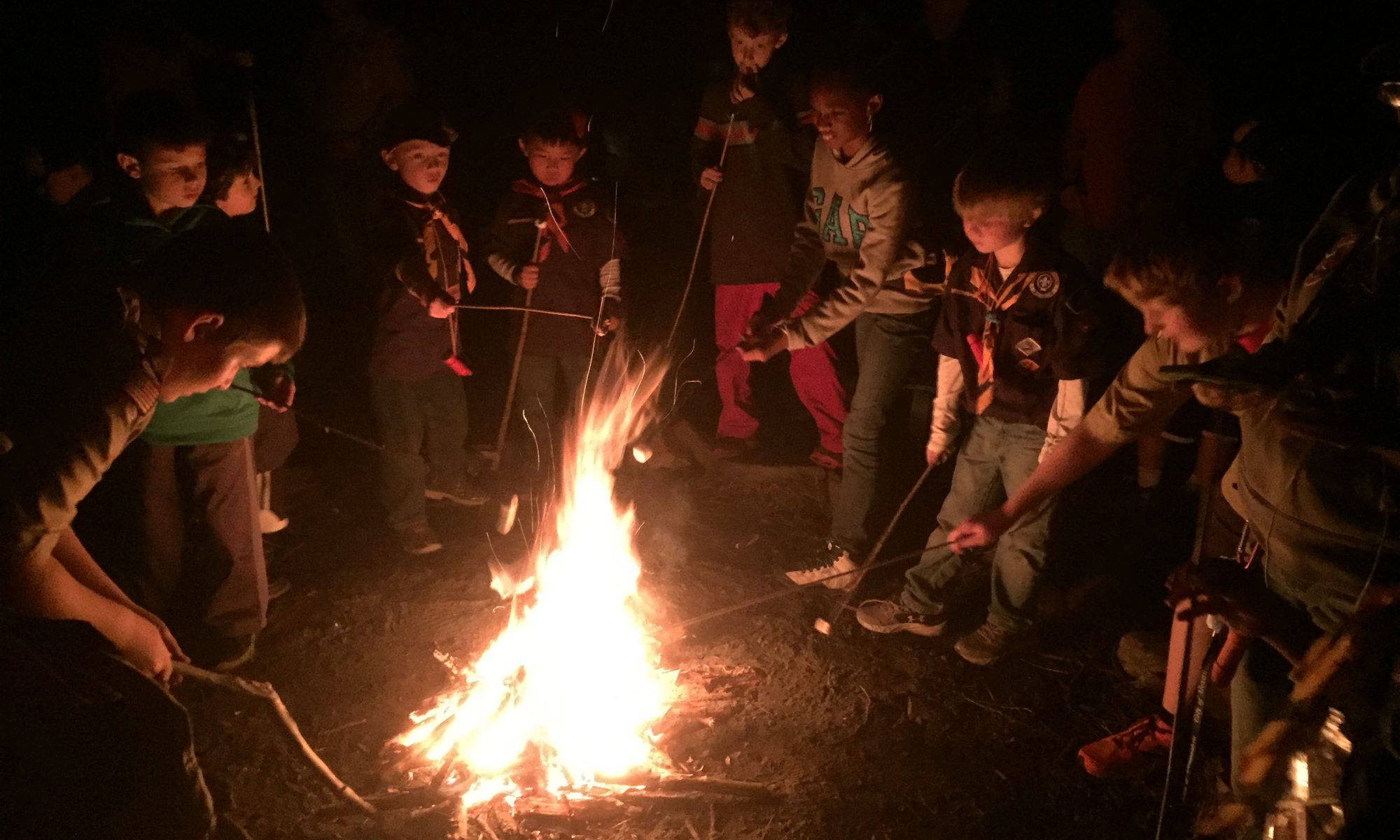Cub Scouting’s goal is to convince boys in first through fifth grades that character is important to the individual, to his family, community, country, world, and God. Scouting has twelve core values that it emphasizes through all of its programs: Citizenship, Compassion, Cooperation, Courage, Faith, Health and Fitness, Honesty, Perseverance, Positive Attitude, Resourcefulness, Respect and Responsibility. These values are embedded into the Cub Scout motto, promise and the Law of the Pack.
Boys are organized into groups or “dens.” In the den, Cub Scouts develop new skills and interests, they practice sportsmanship and good citizenship, and they learn to do their best, not just for themselves but for the den as well. A group of these dens is called a “pack.”
Recognition is important to boys. The advancement plan provides fun for the boys, gives them a sense of personal achievement as they earn badges, and strengthens family understanding as adult family members and their den leader work with boys on advancement projects. Boys advance through Cub Scouting by working through age-appropriate activities toward a rank badge.

The first rank, Bobcat, is for all boys who join Cub Scouting — regardless of rank (from Tiger to Webelos). See our Bobcat Study Sheet (pdf). After they earn this, they move on to earn their grade-level rank.
Tiger Cubs is a simple and fun program for first-grade boys and their families. The Tiger Cub program introduces boys and their adult partners to the excitement of Cub Scouting as they “Search, Discover, and Share” together. The Tiger Cub program is conducted on two levels. First, the Tiger Cub and his adult partner meet in the home to conduct activities for the whole family. Second, the Tiger Cub and his adult partner meet weekly with other Tiger Cubs and adult partners in the den, using the planned “big idea” (or theme) for their activity during one of the meetings.
The Wolf program is for boys who are in second grade. To earn the Wolf badge, a boy must pass twelve achievements involving simple physical and mental skills.
The Bear rank is for boys who are in third grade. There are twenty-four Bear achievements in four different categories. The Cub Scout must complete twelve of these to earn the Bear badge. These requirements are somewhat more difficult and challenging than those for Wolf rank.
 The Webelos program is for boys who are in fourth and fifth grade. A boy may begin working on the Webelos badge as soon as he joins a Webelos den. This is the first step in his transition from the Webelos den to the Boy Scout troop. As he completes the requirements found in the Webelos Scout Book, he will work on activity badges, attend meetings led by adults, and become familiar with the Boy Scout requirements – all leading to the Arrow of Light Award.
The Webelos program is for boys who are in fourth and fifth grade. A boy may begin working on the Webelos badge as soon as he joins a Webelos den. This is the first step in his transition from the Webelos den to the Boy Scout troop. As he completes the requirements found in the Webelos Scout Book, he will work on activity badges, attend meetings led by adults, and become familiar with the Boy Scout requirements – all leading to the Arrow of Light Award.
Each rank has a series of electives, and there are other athletic, academic, and religious awards that the Cub Scout can earn for additional recognition after their yearly rank badge is completed. This allows each Cub Scout to progress at their own pace.
Cub Scouts participate in a huge array of activities, including games, projects, skits, stunts, songs, outdoor activities, trips and service projects. Besides being fun, these activities offer opportunities for growth, achievement, and family involvement.
Our activities with Pack 151 include overnight camping trips, tours of local museums and attractions, pack bowling nights, our Pinewood Derby, community service projects and many other events to allow our Cub Scouts to have fun and learn something new at the same time. All of our events and activities are open to the Cub Scout’s family and friends. We are always open to your suggestions for our next event.

Cub Scouting is a family program. The boy’s family members are always welcome to participate in our events. If you want to get more deeply involved, there are a number of ways to volunteer, from helping us coordinate an event, to joining the pack committee, to becoming a part of the leadership team.
Safety of our boys is Scouting’s number one priority. All events and activities are supervised by the Pack leadership, who has been trained in the BSA methods for conducting an event safely and professionally. The Boy Scouts of America has a zero-tolerance policy of abuse or hazing of any kind. All allegations of abuse, whether by another boy, a leader or a family member are taken seriously and are immediately reported to the proper authorities.
